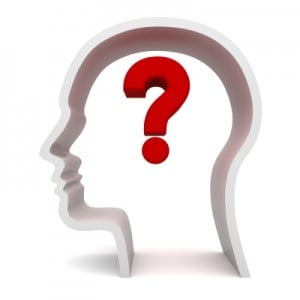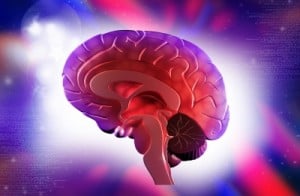 ADHD diagnoses are on the rise for America’s youth with an estimated 6.4 million children between the ages of 4 and 17 already diagnosed. Two-thirds of the children diagnosed are placed on stimulant prescription medication to help correct their behaviors. However, about 50% of people who have ADHD also have concurrent diagnoses of additional psychiatric conditions with anxiety disorders being among the most common. Furthermore, one fourth of children who have been diagnosed with anxiety disorders also have ADHD. In fact, many studies have suggested that ADHD occurring with anxiety may potentially deserve its own sub-classification under the ADHD umbrella. Although the cause for both conditions continues to be widely debated, professionals suspect a combination of genetics and environment to be responsible for the onset of these mental conditions.
ADHD diagnoses are on the rise for America’s youth with an estimated 6.4 million children between the ages of 4 and 17 already diagnosed. Two-thirds of the children diagnosed are placed on stimulant prescription medication to help correct their behaviors. However, about 50% of people who have ADHD also have concurrent diagnoses of additional psychiatric conditions with anxiety disorders being among the most common. Furthermore, one fourth of children who have been diagnosed with anxiety disorders also have ADHD. In fact, many studies have suggested that ADHD occurring with anxiety may potentially deserve its own sub-classification under the ADHD umbrella. Although the cause for both conditions continues to be widely debated, professionals suspect a combination of genetics and environment to be responsible for the onset of these mental conditions.
Children with ADHD often have difficulty keeping up with their peers, provoking anxiety quite early in their school careers. If a child unable to fit in with the rest of the class, the child may become anxious and overwhelmed. For instance, if a teacher calls on a child in class and they do not know the answer, or they have trouble recalling the information fast enough, the child understands this situation incites negative attention from their peers.
The symptoms of ADHD often manifest in obvious ways, making ADHD a more noticeable condition to diagnose. However, anxiety often manifests internally, and can be harder to identify, particularly in children. Taking a look at some of the symptoms of ADHD and anxiety in children, many of them overlap. Stimulant prescription medications are often prescribed to treat ADHD, however they often greatly exacerbate the symptoms of anxiety. If a child has coexisting conditions, stimulant prescriptions are not the best choice of treatment.
Neurotherapy can help ease the symptoms of both ADHD and anxiety at the same time for all ages! Neurotherapy helps the brain learn to maintain a level of calm and increases the ability to focus. Children are able to perform better in school, giving them the confidence needed to reduce anxiety in the classroom. This translates to other aspects of their life in the process. Moreover, the results are long lasting, as neurotherapy delves to the root of the issues in the brain and teaches the brain how to correct these issues on its own. If you suspect your child has anxiety concurrent with ADHD, choosing neurotherapy is the better option for the future success of your child.
Please review the symptoms of both ADHD and anxiety, noting the italicized points as overlapping symptoms.
Symptoms of ADHD in Children
- Calling out in class
- Difficulty concentrating
- Difficulty getting regular sleep
- Difficulty with organization
- Distractibility
- Hyperactivity
- Inability to stay on task
- Lack of attention
- Lack of impulse control
- Poor academic performance
- Restlessness
- Shouting out inappropriate comments
Symptoms of Anxiety in Children
- Difficulty concentrating
- Difficulty getting regular sleep
- Excessive nervousness
- Excessive worry
- Fear without a known cause
- Feeling easily distress/overwhelmed
- Inability to stay on task
- Lack of attention
- Headaches
- Poor academic performance
- Stomach aches
Schedule a free consultation with Advanced Neurotherapy’s director Dr. Jolene Ross.
Image courtesy of photostock at FreeDigitalPhotos.net








